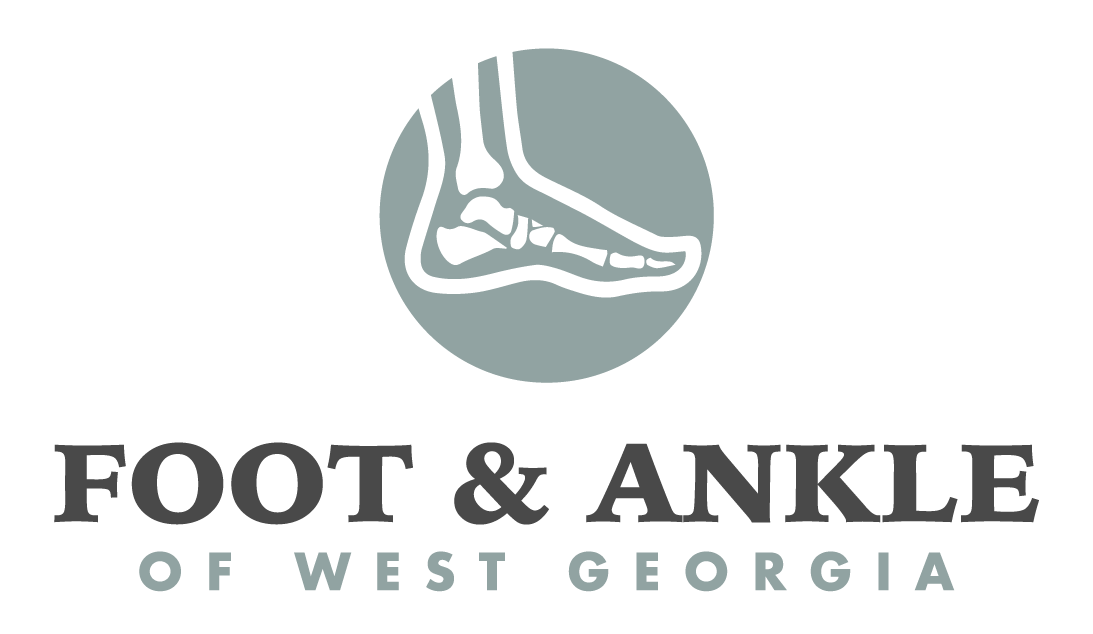Feet and Pregnancy
Why are my ankles and toes so swollen?
Pregnancy triggers many different changes in a woman's body. Perhaps you have noticed that your belly isn't the only thing getting bigger right now. Your feet are particularly vulnerable to swelling during pregnancy. Due to the natural weight gain during pregnancy, a woman's center of gravity is completely altered. While pregnant, you have more blood circulating in your body, this causes a new weight-bearing stance and added pressure to the knees and feet. When you are pregnant, your growing uterus puts pressure on your pelvic veins and on your vena cava (a large vein on the right side of your body that receives blood from your lower limbs and carries it back to the heart). The pressure slows down circulation and causes blood to pool in you legs, forcing fluid from your veins into the tissue of your feet and ankles. This increased pressure is relieved when you lie on your side. And since the vena cava is on the right side of your body, left-sided rest works the best. These problems can lead to pain at the heel, arch, or the ball-of-foot. Many women may also experience leg cramping and varicose veins due to weight gain. It is important for all pregnant women to learn more about foot health during their pregnancy to help make this nine month period more comfortable for them.
When should I be concerned about swelling?
A certain amount of swelling is normal during pregnancy. You may also have some mild swelling in your hands. However, call your doctor if you notice swelling in your face or puffiness around your eyes, more than slight swelling of your hands, or excessive of your feet or ankles. It could be a sign of preeclampsia, a serious condition. Call your caregiver if you notice that one leg is more swollen than the other, especially if you have pain in your calf.
Why do my feet hurt so much?
Another common foot problem is over-pronation, which is also referred to as flat feet. This is caused when a person's arch flattens out upon weight-bearing and their feet roll inward when walking. This can create extreme stress or inflammation on the plantar fascia, the fibrous band of tissue that runs from the heel to the forefoot. Over-pronation can make walking very painful and can increase strain on the feet, calves and/or back. The reason many pregnant women suffer from over-pronation is the added pressure on the body as a result of weight gain. Over-pronation is also very prominent in people who have flexible, flat feet or in people who are obese.
Treatment & Prevention
There are effective ways to treat both over-pronation and swelling during pregnancy. Over-pronation can be treated conservatively with "ready-made" orthotics. These orthotics should be designed with appropriate arch support and medial rearfoot posting to correct the over-pronation. Proper fitting footwear is also very important in treating over-pronation. Choose comfortable footwear that provides extra support and shock absorption. Try to put your feet up whenever possible. Take breaks from sitting or standing by stretching your legs out. Take a short walk every so often to keep your blood circulating. Ask your physician for prescribed maternity support stockings. Suprisingly, drinking plenty of water will allow for an adequate balance of water retention. Be sure and wear comfortable socks and shoes that accommodate the swelling. Don't wear socks or stockings with tight bands around your ankles or calves. Finally, exercise regularly, especially by walking, swimming, or riding an exercise bike. Along with a well balanced diet, this will assure proper nutrition for you and the baby.
As a final note, try not to let these symptoms get you down. Although the sight of you swollen ankles will probably add to you feelings of ungainliness, these are temporary conditions that will pass soon after you give birth.
